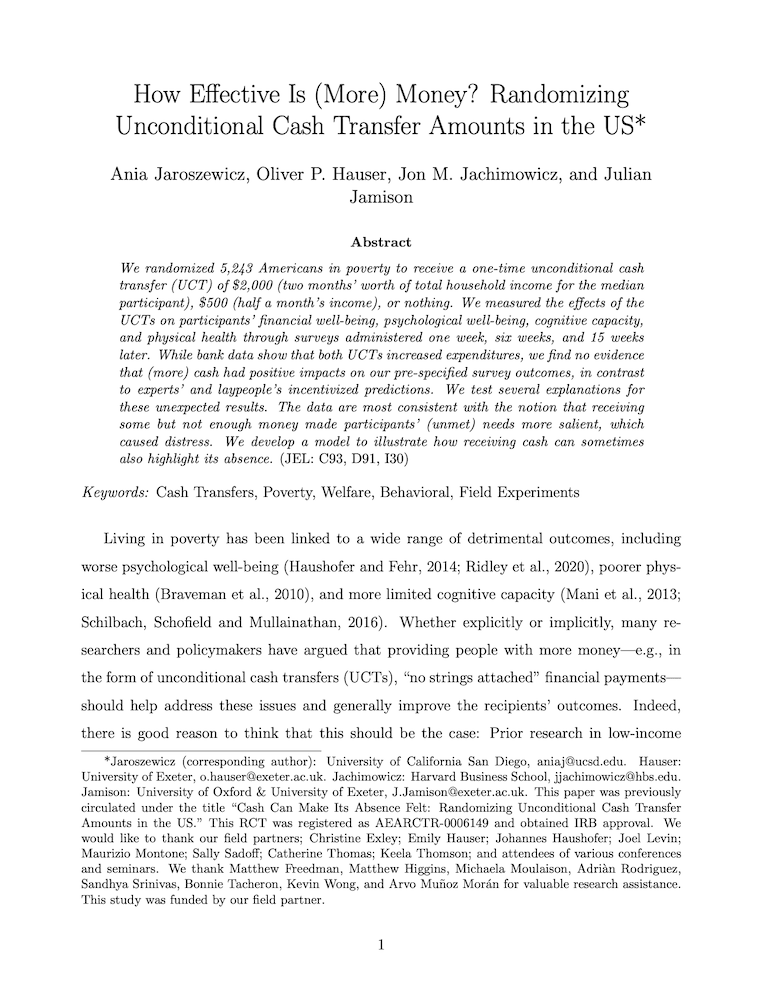How effective is (more) money? Randomizing unconditional cash transfer amounts in the US
Ania Jaroszewicz (University of California San Diego), Oliver P. Hauser (University of Exeter), Jon M. Jachimowicz (Harvard Business School) and Julian Jamison (University of Oxford and University of Exeter)
GPI Working Paper No. 28-2024
We randomized 5,243 Americans in poverty to receive a one-time unconditional cash transfer (UCT) of $2,000 (two months’ worth of total household income for the median participant), $500 (half a month’s income), or nothing. We measured the effects of the UCTs on participants’ financial well-being, psychological well-being, cognitive capacity, and physical health through surveys administered one week, six weeks, and 15 weeks later. While bank data show that both UCTs increased expenditures, we find no evidence that (more) cash had positive impacts on our pre-specified survey outcomes, in contrast to experts’ and laypeople’s incentivized predictions. We test several explanations for these unexpected results. The data are most consistent with the notion that receiving some but not enough money made participants’ (unmet) needs more salient, which caused distress. We develop a model to illustrate how receiving cash can sometimes also highlight its absence. (JEL: C93, D91, I30)
Other working papers
In Defence of Moderation – Jacob Barrett (Vanderbilt University)
A decision theory is fanatical if it says that, for any sure thing of getting some finite amount of value, it would always be better to almost certainly get nothing while having some tiny probability (no matter how small) of getting sufficiently more finite value. Fanaticism is extremely counterintuitive; common sense requires a more moderate view. However, a recent slew of arguments purport to vindicate it, claiming that moderate alternatives to fanaticism are sometimes similarly counterintuitive, face a powerful continuum argument…
Respect for others’ risk attitudes and the long-run future – Andreas Mogensen (Global Priorities Institute, University of Oxford)
When our choice affects some other person and the outcome is unknown, it has been argued that we should defer to their risk attitude, if known, or else default to use of a risk avoidant risk function. This, in turn, has been claimed to require the use of a risk avoidant risk function when making decisions that primarily affect future people, and to decrease the desirability of efforts to prevent human extinction, owing to the significant risks associated with continued human survival. …
On two arguments for Fanaticism – Jeffrey Sanford Russell (University of Southern California)
Should we make significant sacrifices to ever-so-slightly lower the chance of extremely bad outcomes, or to ever-so-slightly raise the chance of extremely good outcomes? Fanaticism says yes: for every bad outcome, there is a tiny chance of of extreme disaster that is even worse, and for every good outcome, there is a tiny chance of an enormous good that is even better.

